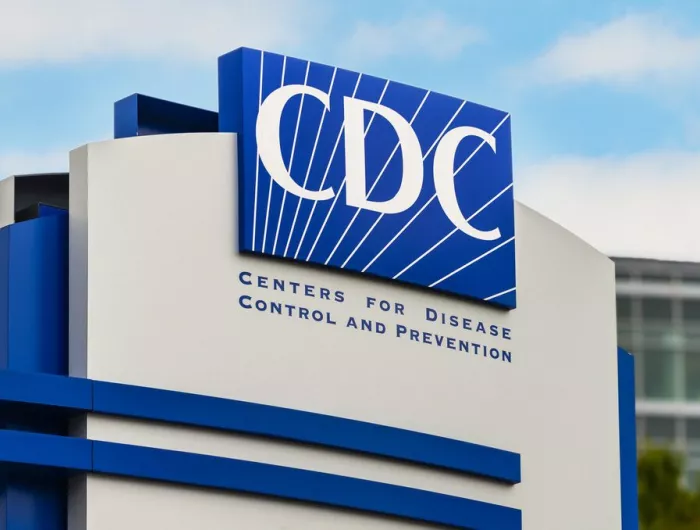WASHINGTON, D.C.The U.S. Centers for Disease Control and Prevention (CDC) is experiencing what many scholars term a complete institutional crisis. Over the last several months, the agency’s reputation as the best governmental body in terms of public health has been shaken by political meddling, leadership changes, and upheavals in vaccine policies. Recently, former administrators of the CDC also testified that they were under pressure from Health and Human Services (HHS) Secretary Robert F. Kennedy Jr. to drop scientific rigor. This can have more than just internal dissent.
Leadership Overhaul and Allegations of Interference
On August 27, 2025, the CDC Director, Dr. Susan Monarez, appointed by Biden, was terminated less than a month after Senate approval, as a new law necessitated Congressional approval of CDC directors. She informed the Senate that Secretary Kennedy had pressured her to accept all the recommendations on vaccines by a panel that he had reconstituted, even without considering scientific evidence.
Monarez claimed that Kennedy requested her to fire career officials in charge of vaccine policy as well, which she said had scientific credentials and experience. He informed her that she could either resign or be sacked when she declined the two instructions.
In the meantime, Dr. Debra Houry, the chief medical and scientific officer of the CDC, resigned in protest. She alleged that Kennedy was censoring CDC science and that he was politicizing our procedures and that he was depriving the leaders of the agencies to defend the health of the American people.
Vaccine Advisory Panel
In June, Secretary Kennedy dissolved the entire 17-member Advisory Committee on Immunization Practices (ACIP) and replaced it with his own nominees. Some of the new members have openly been vaccine-sceptic. Those who opposed this move cautioned that it would undermine scientific credibility and public confidence.
Monarez has testified that Kennedy insisted that she must preapprove vaccine recommendations by this reconstituted ACIP; however, there is no evidence to support this. She refused.
Senate Hearings and Contentions
Monarez and Houry appeared before the Senate HELP (Health, Education, Labor, and Pensions) Committee in mid-September 2025. Monarez informed legislators that Kennedy had claimed there was no science or evidence attached to the childhood vaccine plan, but urged her to alter it without providing any information. She reported telling him that she would only accept changes that were supported by science.
Houry feared the repeat of outbreaks of preventable diseases if the vaccine schedules and guidance were no longer subject to scientific scrutiny. She also talked of disorientation among CDC employees who heard about new COVID-19 vaccine guidance on social media before the scientists noticed the science behind it.)
Senator Bill Cassidy and others requested to know the reason why Monarez, who had just been confirmed, was fired just 29 days in charge. Thematically, they demanded that the Kennedy team be transparent on the communications and policies underpinning these actions.
Consequences for Public Health
The scholars caution that switching the vaccine schedule, particularly for infants, would undermine disease prevention. Indicatively, as the birth dose of the hepatitis B vaccine has been a standard for decades, postponing or eliminating it may permit increased levels of perinatal spread.
Households and health providers have already raised an alarm. They observe inconsistent instructions and do not want the CDC to stop giving clear and evidence-based instructions. Such a lack of certainty can damage public trust and vaccination rates.
Monarez claimed that she is afraid that some of the avoidable illnesses, such as measles and polio, may resurface. She also warned legislators about what she termed a decline in scientific autonomy and a lack of trust between medical practitioners.
Secretary Kennedy’s Responses
Kennedy refuted most of the statements made by Monarez. He claims that he did not insist that Monarez rubber-stamp the decisions. He asserts that she was ousted due to her inability to fit within the administration’s agenda.
According to his office, any alteration to the childhood immunization schedule will be based on scientific data. HHS officials also dispute Monarez’s version of the situation, and she claims that she misinterpreted certain exchanges.
Broader Institutional Risk
Observers view the current turmoil at the CDC as part of a larger initiative under “Project 2025” aimed at reducing the federal role in health guidance, decreasing budgets, restricting vaccine mandates, and transferring decision-making authority.
Analysts caution that layoffs, the marginalization of seasoned professionals, and the replacement of career scientists with political appointees already damage the CDC’s capacity to detect and act on threats such as avian flu, measles, and emerging diseases.
Public and Political Fallout
Both parties of lawmakers are alarmed. Both Senate Republicans and Democrats demanded the documentation of President Kennedy’s orders, internal emails, and decision-making records.
Medical associations and public health organizations demand the restoration of scientific control and professional integrity. They caution that it will be harmful to lose the trust of the scientists and doctors in disease prevention.
Meanwhile, the media and watchdogs monitor the slowness of appointments, data-free announcements of changes in policies, and the declining availability of vaccines to pregnant women and healthy children.
What Happens Next
ACIP convenes again in September 2025 to discuss the significant modifications to vaccine recommendations, such as the potential change in the hepatitis B at-birth schedule. The results of a meeting will determine whether science or politics will inform policy regarding the vaccines. Transparency is required in Senate committees. They look forward to document releases, which will be clarified with HHS regarding the lines of authority and scientific integrity.
Other legislators introduce other supervision laws. Trust recovery is urged by experts in the field of public health. They request evidence-based policy, defense of career scientists, and clear expression to prevent confusion and a decrease in vaccine acceptance.









